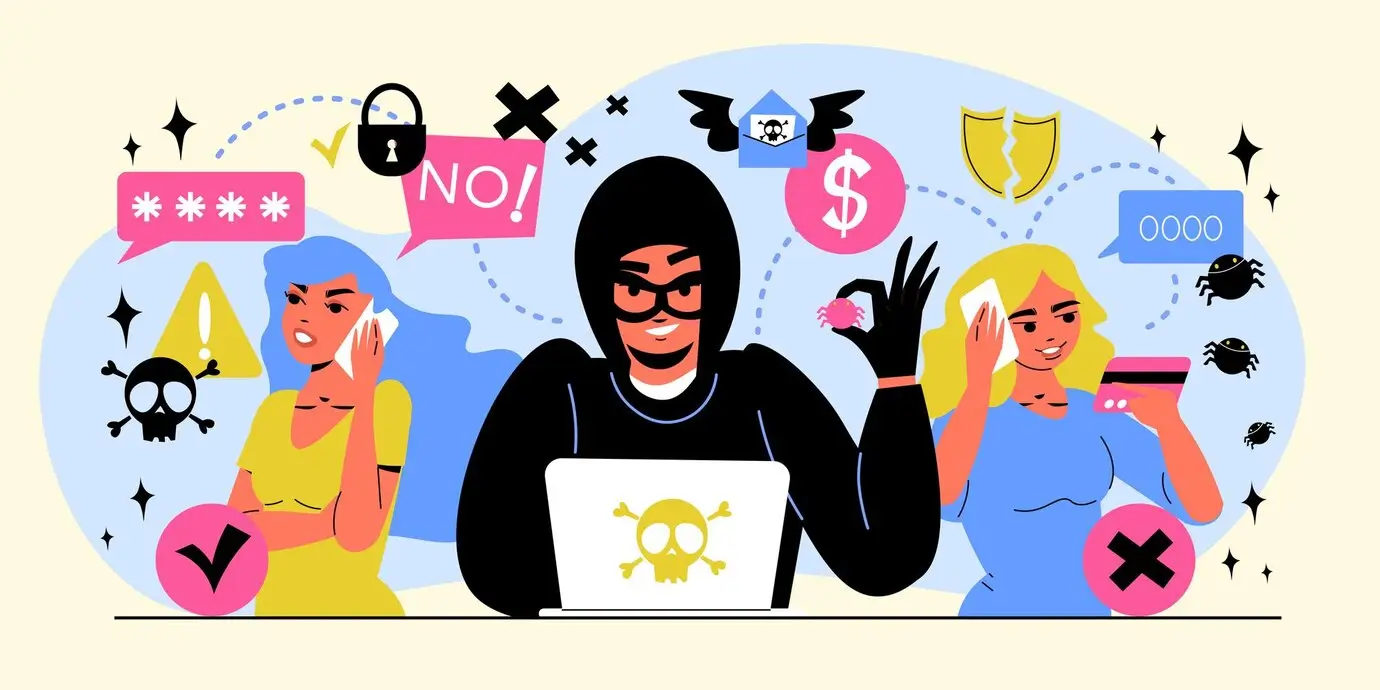What is Messenger Fraud?
In recent years, messengers like WhatsApp and Telegram have become an integral part of our lives. They allow us to quickly and conveniently communicate with friends, family, and colleagues. However, as their popularity has grown, so has the number of fraudulent schemes targeting users of these platforms. Messenger fraud involves the use of various techniques by scammers to deceive people to obtain their personal data or money.
Popular Fraud Schemes in Messengers
Scammers use many creative approaches to achieve their goals. Let's look at some of the most common schemes:
1. Phishing Links
Phishing is a method of deception where scammers try to gain access to confidential information such as logins, passwords, or bank card numbers. In messengers, this is often done through phishing links that are disguised as reliable sources. For example, a scammer may send a message with a link supposedly from your bank, asking you to update your information.
2. Lotteries and Contests
Another popular scheme is notifications about winning lotteries or contests. The user is informed of a large prize and asked to pay a "tax" or "fee" to receive it. Of course, after payment, the person receives no winnings.
3. Scammers Posing as Tech Support
This type of fraud involves contacts from "support service," supposedly to resolve an issue with your account. Scammers may ask to confirm personal information or even provide remote access to the device.
4. Fraud through WhatsApp and Telegram
These platforms are especially popular among scammers due to their wide audience and the possibility of anonymous communication. Fraud through WhatsApp and Telegram can include the schemes described above, as well as more specific ones, such as:
- Fake Groups and Channels: Creating fake communities to spread misinformation or collect money.
- Investment Scams: Offers of high-yield investments that turn out to be pyramids.
How to Recognize Scammers
Distinguishing a scammer from a real user can be difficult, but there are several signs that should alert you:
- Unexpected messages from strangers: If you receive a message from someone you don't know, it's already a reason for caution.
- Mistakes and typos in the text: Scammers often use automatic translators, which leads to errors in messages.
- Too good to be true offers: If something looks too good to be true, it probably is.
Methods of Protection against Scammers
Protecting against scammers requires attentiveness and following some security rules:
Regularly Update the App
Messenger developers constantly work on improving the security of their apps. Regular updates help protect against known vulnerabilities.
Use Two-Factor Authentication
Many messengers offer the option to set up two-factor authentication. This is an additional level of security that requires identity confirmation via SMS or another app.
Be Careful with Links and Attachments
Do not open links or download files from strangers. If a link comes from a friend but seems suspicious, it's better to check with the sender if they actually sent it.
Set Profile Privacy
Many messengers allow you to set the visibility of your profile and contact information. Restrict access to this data to protect against scammers.
What to Do if You Fall Victim to Scammers
If you do fall for a scam, it's important to act quickly:
- Report the Fraud: Contact the messenger's support and report the problem.
- Change Passwords: If you provided any data, immediately change the passwords for all related accounts.
- Check Bank Accounts: Make sure there have been no unauthorized transactions from your accounts.
How to Help Others Avoid Fraud
Informing the public about fraud methods is an important step towards prevention. You can:
- Share this article with friends and family.
- Participate in educational campaigns on internet safety.
- Report scammers to the appropriate authorities and platforms.
Conclusion
Fraud in messengers is a serious problem, but with proper preparation and awareness, you can protect yourself and your loved ones from scammers. Remember that your online safety primarily depends on your attentiveness and caution. Do not fall for scammers' tricks and always verify information before taking action.
